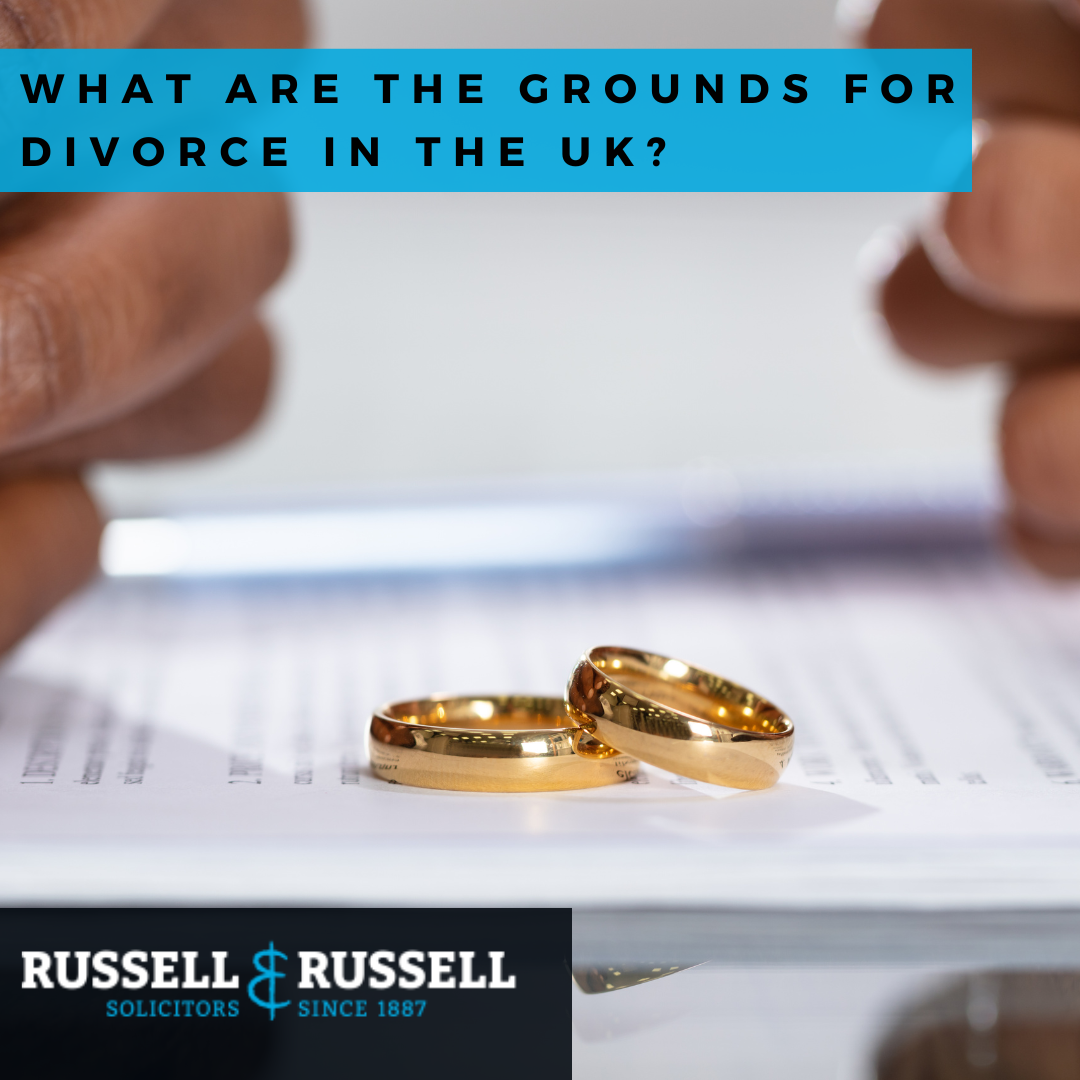04/12/2024

There is only one ground for divorce in England and Wales, which is the irretrievable breakdown of marriage.
This has always been the case.
However, before the Divorce, Dissolution and Separation Act 2020 (‘the Divorce Act’) came into force in England and Wales in April 2022, couples who wanted to divorce had to show that one of five ‘facts’ had occurred as evidence of the breakdown of their relationship.
The five facts of divorce were:
- Adultery.
- Unreasonable behaviour.
- Desertion.
- Two years’ separation with the consent of the other.
- Five years’ separation, whether your spouse agreed to the divorce or not.
Attributing blame for the end of a relationship was difficult for many couples, particularly those who had simply grown apart and didn’t have a concrete ‘reason’ for their separation.
This fault-based system of divorce was criticised for not being fit for purpose and instead causing unnecessary conflict between couples, often leading to lengthy, costly and utterly avoidable court proceedings.
The Divorce Act 2020 removed the ‘blame game’ associated with divorce proceedings by introducing no-fault divorce.
Since 6 April 2022, couples no longer need to explain why their marriage or civil partnership has broken down and don’t have to assign responsibility for the end of their marriage.
The sole ground for divorce or the dissolution of a civil partnership is that a marriage has broken down irretrievably.
How Do You Get a Divorce in England?
You must follow a set legal process to get a divorce. Couples must have been married for at least 12 months before applying for a divorce and can make an application either individually or together.
We would strongly recommend that if you are thinking of getting a divorce, you seek specialist legal advice.
A divorce is only the legal end to your marriage, and arrangements for any children, finances, and property need to be made separately.
A family solicitor with experience in divorce and civil partnership dissolution will be able to guide you through exactly what the process involves and ensure any settlement you agree with an ex-spouse is in your best interests.
To get a divorce, you must:
File an application. You can submit your application either online or by post. Applicants must provide certain information, complete a statement stating that the marriage has broken down irretrievably and send in a copy of their marriage certificate.
For joint applications, there will then be a 20-week ‘cooling-off’ period while the court processes the application, and couples come to an agreement about any children and finances. For sole applications, the person being served with the divorce (known as the respondent) will have seven days to file a response.
Conditional order. Once the cooling-off period is over, couples can apply for a conditional order (previously called a decree nisi), which confirms the court cannot see any reason why the divorce or dissolution cannot proceed.
Final order. After being granted the conditional order, applicants must wait at least six weeks and one day before applying for a final order (previously known as a decree absolute), which confirms your marriage or civil partnership is officially over.
How Much Does a Divorce Cost?
At Russell & Russell, we generally charge a flat-fee for divorce proceedings.
For undefended proceedings, we charge £575 + 20% VAT and disbursements if you’re the person filing the divorce (the petitioner). You will also be responsible for a court fee of £593, although there are fee exemptions for those on low incomes.
If you’re the respondent, our standard rate for undefended proceedings is £300 + 20% VAT.
For more information about our fees, click here.
How long will my divorce take?
On average, the divorce process is around six months.
Solicitors for Divorce Near Me
Divorce can be enormously stressful and emotional, and although you need to look after yourself on a personal level, it’s also important to understand what the legal process is and what’s best for you.
At Russell & Russell, our experienced family lawyers can provide advice and guidance if you are considering getting a divorce or separation, dissolving a civil partnership, or making any kind of arrangements for children or financial settlements.
Regardless of how complicated your think your situation might be, we have the expertise to assist you with all areas of family and matrimonial law. Our specialist family lawyers can advise you on all divorce and separation matters including:
- The divorce process.
- Separation.
- Financial matters.
- Child matters.
Please contact our divorce and separation team on 0800 103 2600 or make an online enquiry and someone will get in touch.
Please note that this article is meant as general guidance and not intended as legal or professional advice. Updates to the law may have changed since this article was published.
Cost and fee information is correct at the time of writing but may be subject to change. For up-to-date fee information, please visit our website.
Please note that this article is meant as general guidance and not intended as legal or professional advice. Updates to the law may have changed since this article was published.

